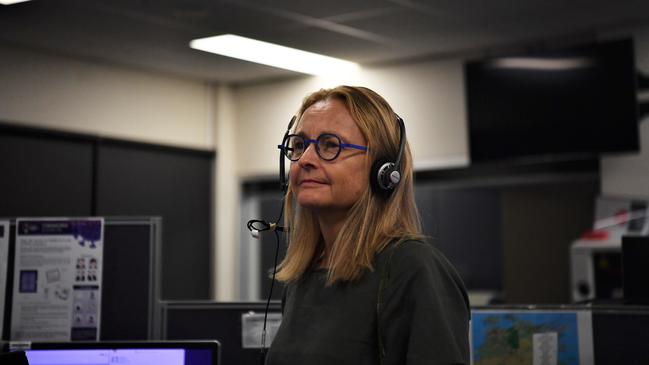Death in custody inquest to investigate why Kumunjayi Ptjara was locked up, put in spit hood
Investigators have questioned why a 66-year-old Aboriginal man with severe dementia was locked up, and then placed in a spit hood while a patient at Alice Springs Hospital.

Police & Courts
Don't miss out on the headlines from Police & Courts. Followed categories will be added to My News.
An elderly patient with severe dementia was restrained in a spit hood while in hospital days before his death in custody, the Territory coroner has heard.
The 66-year-old man, known for cultural reasons as Kumunjayi Ptjara, passed away at Alice Springs Hospital on September 12, 2023 — just two weeks after being sent to prison for a breach of bail.
In Darwin Local Court on Monday, Detective Senior Constable Christopher Ship questioned why the Aboriginal man with links to Alice Springs and Atitjere was ever left behind bars, given his severe cognitive disability.
“A very interesting part of this brief is the fact that Mr Ptjara was in custody in the first place, and whether or not there could have been an alternative,” Constable Ship told Coroner Elisabeth Armitage.
Constable Ship said he had not identified any “criminal” actions in relation to the death in custody, however raised concerns about the use of spit hoods in a hospital setting.
“I do not believe that there’s any direct implications to his health, but certainly something you may wish to look at and certainly Corrections look at their standing orders around their use,” he said.

Spit hoods are a restraint technique classified by the United Nations as a torture device, and have been banned in NT youth justice centres and on children in police watch houses.
South Australia, the Australian Federal Police and Queensland Police have banned spit hoods for all people in custody, with the NT Ombudsman recommending that Territory cops follow suit.
However NT Police and Corrections continue to use the devices on adult prisoners.
Constable Ship said he was hoping to get a statement from Mr Ptjara’s defence lawyer, Tania Collins, who fought to get her disabled client out of custody.
The 66-year-old allegedly assaulted three workers and a police officer at an Alice Springs bar, the Jump Inn on May 23, and spent nearly 100 days on remand in the vulnerable prisoners unit at Alice Springs prison.
In August Ms Collins was able to bail Mr Ptjara to a 24/7 NDIS supported accommodation facility, however after a single day of freedom Mr Pitjara was back in the cells over a breach.
Ms Collins told Alice Springs Local Court that after being released the 66-year-old “acted out” in his new surroundings and allegedly threatened disability workers with a stick and a rock.
Just 14 days after being returned to prison, Mr Pitjara passed away.
Ms Collins had attempted to get the Aboriginal man classed as a PartIIAA prisoner, meaning he was mentally unfit to make a plea.
Ms Armitage said she would investigate Mr Ptjara’s medical, police and custody files as part of her coronial inquiry.
Legal representatives from NT Health, Corrections and the Office of the Public Guardian appeared before Ms Armitage on Monday, while the Anti-Discrimination Commissioner Jeswynn Yogaratnam also signalled he was considering registering as an interested party in the death in custody inquest.
Outside the court, Mr Yogaratnam said the case may illustrate how Territorians with mental health issues fare in the criminal justice system, and questioned if there was a failure under the Anti-Discrimination Act to meet the duty to accommodate a person’s special needs.




